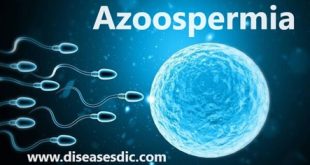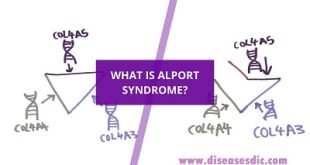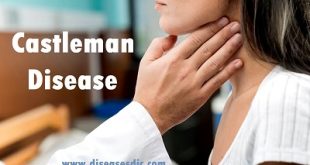Definition
Asthma is the chronic condition that causes inflammation, swell, produce extra mucus and narrowing in the airway of the lungs. People who have this chronic condition for a long time or recurrent is said to be asthmatic. This causes wheezing, chest tightness, coughing and shortness of breath. A cough often occurs early morning or at night time. It cannot be cured but some treatments can reduce the symptoms and can be controlled. It affects people with all age groups and often occurs in children’s.
History
- The term asthma comes from the Greek word aazein which means to exhale through an open mouth, to pant and sharp breath.
- 460 BC- Hippocrates (460 BC) was the first to use the term Asthma as a panting and respiratory distress. Many physicians considered him that who was identified the relation between respiratory disease & the environment.
- 327 BC- smoking the herb stramonium (which is an anticholinergic agent related to ipratropium and tiotropium which are currently used in inhalers today) was used to help relax the lungs.
- 100 AD – Aretaeus of Cappadocia, a Greek physician, is credited with the first accurate description of asthma, as we know it today. He wrote symptoms include chest heaviness, difficulty in breathing and tiredness.
- A Jewish physician & scholar by the name of Maimonides (1135-1204 AD) prescribed sleep, fluids, and chicken soup. He noted that his patient’s symptoms became worse during the wet months which proceeded to the person gasping for air and coughing until phlegm was expelled.
Epidemiology
The prevalence of asthma varies widely in different regions of the world due to distinct genetic, environmental and occupational risk factors. However, this disparity appears to be closing as the prevalence in high-income countries is reaching a plateau whereas the prevalence in low and middle-income countries continues to rise.
Worldwide, it is estimated that approximately 334 million people currently suffer from asthma, and 250,000 deaths are attributed to the disease each year. The prevalence of the disease is continuing to grow, and the overall prevalence is estimated to increase by 100 million by 2025.
Types of Asthma
Child onset asthma: For some children’s the onset of asthma may begin during childhood. Due to genetic reason, the child may become sensitized to common allergens in the environment. The child is a topic- generally in the state of hypersensitivity due to environmental allergens. Allergens are the substances that act as a foreign body that triggers the immune to respond.
Adult-Onset Asthma: This term is used when a person develops asthma after reaching 20 years of age. Adult-onset asthma affects women more than men, and it is also much less common than child-onset asthma. It is also triggered by some allergic materials or an allergy. The cause of adult-onset asthma seems to be triggered by the exposure to the allergens called nonallergic adult-onset asthma. This type of non-allergic asthma is also called as intrinsic asthma. Exposure to chemicals, plastics, metals, certain medicines or wood dust can cause adult-onset asthma.
Exercise-Induced Asthma: After exercise, if you feel difficulty in breathing or wheezing, then you could be suffering from exercise-induced asthma. Obviously, your level of fitness is also a factor – a person who is unfit and runs fast for ten minutes is going to be out of breath. However, if your coughing, wheezing or panting does not make sense, this could be an indication of exercise-induced asthma. Some exercise may cause the inflammation of airway tubes or bronchial and thus it results in asthma.
Cough-Induced Asthma: Cough-induced asthma is one of the most difficult asthmas to diagnose. The doctor has to eliminate other possibilities, such as chronic bronchitis, post nasal drip due to hay fever, or sinus disease. In this case, the coughing can occur alone, without other asthma-type symptoms being present. The coughing can happen at any time of day or night. If it happens at night it can disrupt sleep.
Nocturnal Asthma: It occurs only during night time from night to 8 am. It is due to the dust and pet dander or may be due to a sinus condition. The patient may have wheezing or short breath when lying down and may not notice these symptoms until awoken by them in the middle of the night – usually between 2 and 4 AM. Nighttime symptoms may also be a common problem in those with daytime asthma as well.
Steroid-Resistant Asthma (Severe Asthma): Some steroid therapy, the patient responds to regularly inhaled glucocorticoid (steroid) therapy, due to steroid resistance. By reducing airway inflammation and immune activation, glucocorticoids are used to treat asthma. However, patients with steroid-resistant asthma have higher levels of immune activation in their airways than do patients with steroid-sensitive (SS) asthma.
Risk factors
Some of the risk factors that may cause the risk of having it are as follows:
- Being a smoker
- Exposure to occupational triggers, such as chemicals used in farming, hairdressing, and manufacturing
- Having a blood relative (such as a parent or sibling) with asthma
- Having another allergic condition, such as atopic dermatitis or allergic rhinitis (hay fever)
- Being overweight
- Second-hand smoking
- Exposure to exhaust fumes or other types of pollution
- Obesity is the greater risk of getting asthma
Causes of Asthma
It’s not clear why people get it, but probably due to some allergic, genetic and environmental factors. It triggers are different from person to person. Some of the causes of asthma are as follows:
- Air pollution and smoke
- Cold air
- Emotions and stress
- Tobacco smoke
- Atopy
- Gene
- Allergies such as dust, mites, fungi, and cockroaches
- Certain medication such as including beta blockers, aspirin, ibuprofen (Advil, Motrin IB, others) and naproxen (Aleve)
- Gastroesophageal reflux disease (GERD), a condition in which stomach acids back up into your throat
Early warning signs
- Itchy, scratchy, or sore throat
- Waking up at night
- Dark circles under eyes
- Runny, stuffy or congested nose
- Increased tiredness
- Chest tightness, pain, or pressure
- Shortness of breath
- Coughing, especially at night
- Wheezing
- Thirst
- Itchy, glassy or watery eyes
- Rubbing nose a lot
- Sneezing
- Stomach ache
- Headache
- Fever
- Feeling restless
- Change in face color – pale or flushed
- Throat clearing
Symptoms in Children
- Nagging cough that lingers for days or weeks to sudden and scary breathing emergencies
- Trouble breathing or fast breathing that causes the skin around the ribs or neck to pull in tightly
- Frequent colds that settle in the chest
Effects of asthma
- Stress, anxiety and depression.
- pneumonia (infection of the lungs)
- Lung collapse
- Respiratory failure, where the levels of oxygen in the blood become dangerously low, or the levels of carbon dioxide become dangerously high
- Status asthmaticus which do not respond to treatment).
Diagnosis of Asthma
Physical exam and medical history:
Your doctor will investigate your symptoms and their cases. They will question you about the family history of asthma, medicines you consume, and your lifestyle. Also, ask about previous medical conditions like allergy and eczema that might increase your asthma. During such investigations by your doctor, you should inform about your work and home environment that may worsen your asthma.
Diagnostic tests
Lung function tests: The function of the lungs is tested for how much air that you breathe in and out. It also measures the rate at which you breathe out by using equipment called spirometer. Hence this test is also called a spirometry test.
- Bronchoprovocation test: It is a test to measure how much sense the airways of your nose. With the help of spirometer function of the lungs is repeatedly measured during the physical activities or after you received a dose of cold air or a special drug called bronchodilator to breathe.
- Peak air flow meter: the peak airflow flow meter is much sensitive device indicates the changes that occur in your airways. Before you notice signs and symptoms this device can help to avoid serious effects of it.
- Fractional exhaled nitric oxide (FeNO) Test: It is a test to measure the amount of nitric oxide present in your breathing air. FeNo is a non-invasive and quick test. The results of this test will help to identify the amount of inflammation in airways.
- Provocation test: It is a form of a clinical trial whereby participants are exposed to either a substance or a molecule that is claimed to provoke a response. Methacholine is a known asthma trigger that, when inhaled, will cause mild constriction of your airways. If you react to the methacholine, you likely have asthma. This test may be used even if your initial lung function test is normal.
- Imaging test: A chest X-ray and high-resolution CT scan are used to visualize the lungs and sinuses. This may reveal their structural abnormalities and inflammations.
- Sputum eosinophil test: This test is used to visualize the eosinophils that may present in the saliva and mucus discharged from the nose and mouth during coughing. Eosinophils are present when symptoms develop and become visible when stained with a rose-colored dye (eosin).
Treatment and Medication
Treatment doesn’t have a cure for asthma since it is a lifelong disease. There is some requirement for the treatment.
- Monitoring asthma symptoms daily is needed for rescue medication.
- Avoid agents or substance that triggers asthma.
- Consume medications daily to stop inflammation and chronic symptoms.
- Instant drugs such as albuterol can be used.
Medications
In general, there are two types of asthma medications such as anti-inflammatory and bronchodilators.
- Anti-inflammatory drugs: They reduce swelling and mucus production in the airways, making them less likely to react to triggers. Inhaled corticosteroids include beclomethasone (QVAR), budesonide (Pulmicort), fluticasone (Flovent), flunisolide (Aerobid, Aerospan), and ciclesonide (Alvesco) all of which are usually taken twice-a-day, and mometasone (Asmanex) and fluticasone furoate (Arnuity Ellipta), which may control it in some patients when taken just once-a-day.
- Bronchodilators: It relieves the symptoms of asthma by temporarily relaxing the muscle bands that tighten around the airways. As a result, breathing improves for about four hours for the short-acting bronchodilators and for about 12 hours for the long-acting inhaled bronchodilators. Short-acting inhaled bronchodilators include the highly popular rescue inhaler albuterol.
Preventive measures for Asthma
- Use allergy-proof covers on pillows and mattresses.
- Do not allow pets in bedrooms or on furniture.
- Remove carpets and stuffed toys from bedrooms. The spur from them will act as allergens.
- Avoid areas where people smoke also try to avoid smoking.
- Avoid harsh cleaning products and chemicals.
- Reduce your stress and enjoy doing the things in your daily life.
- Pay attention to air quality in your environment.
- Perform physical activity daily.
- Understand the climatic conditions around you and act accordingly to rescue from asthma.
 Diseases Treatments Dictionary This is complete solution to read all diseases treatments Which covers Prevention, Causes, Symptoms, Medical Terms, Drugs, Prescription, Natural Remedies with cures and Treatments. Most of the common diseases were listed in names, split with categories.
Diseases Treatments Dictionary This is complete solution to read all diseases treatments Which covers Prevention, Causes, Symptoms, Medical Terms, Drugs, Prescription, Natural Remedies with cures and Treatments. Most of the common diseases were listed in names, split with categories.








hello here…. can’t find herpes zoster…
very soon we will update in posts. thank you for your feedback.
I don’t believe that Asthma can not be cured. The complete statement should be that “Asthma cannot be cured with orthodox medicine” . These days many traditional medicines are curing this condition. Regular consumption of Grounded Ginger and Garlic and Thyme in the right doses can cure this condition.
Many other solutions exist. Why is it that orthodox medicines have no solution to virtually all diseases, even common malaria.
Some years back I used to have malaria attack every other month until someone told me that nothing cures malaria like Moringa leave. So I start taken one tea spoon of moringa power everyday spread on any of my food especially my last meal. Right now I can not remember the last time I suffered malaria attack.
which medicine
I take plz give
prescription
consult a doctor.
I have not yet yet seen the doctor bt it’s like i have some of the signs of asthma n i hv a friend for him it’s worse n some times i fear to help him bse he scared.
please consult a doctor ASAP.
Is asthma a communicable disease ?
It is a non-communicable disease.
There is patient suffering from ectopic right kidney feeling right lumber pain using neubrole forte for pain relief regularly kindly given me sugestion for that pateint
Please do diagnose on that patient to identify any kidney problems that he or she has. Later prefer treatment accordingly.
pls send me treatment and cares
Please read the treatment and prevention that is given in the post.
thanks very much for this great information and knowledge you are impacting in us .indeed only if we can all have this information .I believe we can have little number of cases and diseases. continue to educate us even on this very platform and media. I personally I have learn a lot of things which seems to be a threat to my health but since I have this information and access to get this information my life is free from fears and i believe I shall save one life out there through this information
ashma is a serious condition which requires one to consult doctors
I am one of the lot who have asthma… right now, I rarely have attacks because I always control my asthma by breath in hard and breath out hard… to me, it works. the point is, you dont need medicine for it, unless of course it is severe… but during its acute phases, we cn still do something about it without using medications
First I want to thank you so much for the information. I have been asthmatic since childhood and am 34 years old now even my 13 years old daughter also have it now which making me so worried. but my the I have now is that. is possible for one person to have all 5 types of asthma? cos according to the way u explain it, I always have the symptoms in all
Please consult a doctor. Follow some precautions and prevention given in the post.
Please this for the person who spoke about ginger garlic and tym. how do I use it please
Abebiyi Goksin.. Please prescribe some simple ways to prevent it rather than the Orthodox one… please I think u’ll help me
Kindly read the post to know about the treatment and cure of asthma.
sinus arrhythmia, shortness of breath can be linked to asthma.
yes, some time due to blockage of the airway may cause shortness of breath and arrhythmia.
any research is going on for the Athama, please inform me latest research. my daughter is the sufferer.thanks.
Understanding Role Receptor Involved in Lung Inflammation Plays in Asthma.
Studying Genes Important in Controlling Immune Response in Allergic Asthma.
pls I have use all drug they prescribed to me but it not they said there is solution s about it Since I was in childhood that have asthma but now I am 19 years now pls what can I do about it?
please consult a good doctor or try for homeopathy treatment. u may get a complete cure for this problem.
pls tell some medicine for asthama
you.website very nice
Please see the treatment and medications in the post.
Everybody who are the victims of Asthma should take a Montilucast tablet with an anti-histamin. If it seems very severe than you should take a Doxofylin 200mg tablet with these tablets. It is a up to date treatment of Asthma. Try it.
thanks this was helpful. so what first aid can I offer instantly when someone has an attack and we dont have inhailer.
Sit the person upright comfortably and loosen tight clothing.
If the person has asthma medication, such as an inhaler, assist in using it.
If the person doesn’t have an inhaler, use one from a first aid kit. Do not borrow someone else’s. The medicine in it may be different than the needed rescue medicine. Also, using someone else’s inhaler has a slight risk of passing on an infection.
Can snoring in children and fast breath be a symptoms of asthma?
very interesting
iam in Somalia town Kismaanyo state jubaland Somalia. my about a disease athema chronic 15 yrs and always I feeling to time night sleeping so I gough very strong I only use air bufly one time after that iam I relax and my athema is begin to prochites so Wat can I do that
Please consult with a doctor as soon as possible to reduce the future effects.
I am not sure whether my wife has completely been cured of Asthma but she is not having an asthma attack since a man, who self-practices in a village, gave him an injection of particular medicine, Ceflin in 2003.
It is better to consult a specialist to avoid any inconvenience in the future.
I think Ceflin can cure asthma but not sure
my child have adenoid and cough almost every day, his breathing sometimes causes his stomach to go up and down fast, could it be asthma? thank you.
please consult a doctor to get diagnosed.
well….. asthma has no scientifically proven cure but one can have the disease for so many years and will be noticed by no one if its not triggered.
so my point is apart from nocturnal asthma which happened at night, one should realise that once he or she is away from his or her allergic substance, attack is far away.
try and identity your allergy and follow that which is given and be safe
I’m also a steroid resistant asthmatic patient.
very useful app and much informative.
very enlightening. i think i have cough induced asthma and Gerd related
Please consult a doctor.
help m I don’t know wether it’s asthma or not this triggers in the season only I’ll b breathing as if I don’t have enough air n sometimes I’ll b coughing
Please consult a doctor to get rid of the asthma problem.
m 89 yrs old n m on warfarin. was told that Ensure milk powder is not recommended. pls advise.
Avoid taking milk, it will increase the problem of asthma.
very educative and interesting.
But is there any secrete herbs that can take out asthma?
inhaler is changing my voice what is the solution?
Please consult the doctor.
please which of the medicine is preferable
Please consult a doctor for better medication.
very exciting to hear reasoning from cause to effect
Is there a way to get rid of mucus in these pipes?
I have a 2 year old grand son and he has a deep cough hes had since he was born. when hes well he rarely coughs. but when he has a cold it’s a horrible bronchitis like cough. I suspect hes a magic. what can I do for him
Please consult a doctor asap.
the topic is very impressive a lay man can watch and prevent asthma after reading the topic very well thanks for teaching us
hi , what kind of food that i need eat ? i have asthima.
Eat plenty of fruits and vegetables.
Avoid trans fats and omega-6 fatty acids.
Eat foods with omega-3 fatty acids.
My dad suffer asthama 40 years and do treatment all his life but atleast this killer disease kill him on 2 march 2019. We see him in very critical condtion his lungs were start to failed day by day from some years and at the end no recovery and totally failed. He remain in icu in last two days of his painfull time of life. My dad suffer asthama in young age of 20 he did not smoke a single cigrate in his entire life. But i saw him struggling with this killer disease always. Now only memories.
I had an asthma attack two days back and have Been using the normal inhaler that was prescribed to me by medical doctor which is ventolin inhaler but it seems it not that Infective on me again and have not got my self back
Please consult a doctor once if your drug is not functioning properly.
This is very helpful especially to health workers…!
but people will say Asthma has a cure
Asthma is an eminently controllable illness. Indeed, for most sufferers, control is so effective that it amounts to a virtual cure. But asthma is not curable in the same way as, say, a bacterial pneumonia; it never entirely goes away. Also, no one cure would ever suffice.
am asthmatic person pls kindly send me full detail of guard
This article gives you a full description.
please am having some but have been treating it is not going what should I to.
Please consult a doctor to get rid of this problem completely.
At age 11 what drug is recommended for an asthmatic patient.
Types of long-term control medications for children ages 5 to 11:
Inhaled corticosteroids- Fluticasone (Flovent HFA), budesonide (Pulmicort Flexhaler), beclomethasone (Qvar), ciclesonide (Alvesco) and mometasone (Asmanex HFA)
Combination inhalers: Fluticasone-salmeterol (Advair HFA), budesonide-formoterol (Symbicort), fluticasone-vilanterol (Breo Ellipta) and mometasone-formoterol (Dulera)
Theophylline- This is a daily medication that opens the airways (bronchodilator)
does alcohol trgger asthma?
Yes, alcohol can cause asthma to worsen.
what are the drugs that is good for Asthmatic patient?
Some quick-relief asthma medicines include:
Albuterol (ProAir HFA, Proventil HFA, Ventolin HFA)
Levalbuterol (Xopenex HFA)
Metaproterenol
Terbutaline
Thank very much for
I had asthma since childhood and disturbing till today am my mid 40 now,I live daily on inhaler Ventolin I use inhaler more often in the day to on with life also at night.
what else can you recommend to me.
please try some of these remedies.
Sit up straight
Remain calm
Steady your breathing
Move away from triggers
is zinger and garlic usefully for the above charcters
Garlic has several health benefits, including anti-inflammatory properties, according to a 2013 study. Because asthma is an inflammatory disease, garlic may be able to help relieve your symptoms. Still, there’s no conclusive evidence that garlic is effective against preventing asthma flare-ups.
Ginger, in both human and animal models, to have broncho relaxation properties. Finally, ginger has also been shown in animal models to protect against hyper-responsive airways in a methacholine challenge.
PLzz suggest Ayurveda treatment too ???
please let me know other asthma drug
Types of asthma medications
*Inhaled corticosteroids.
*Leukotriene modifiers.
*Long-acting beta agonists (LABAs)
*Theophylline.
*Combination inhalers that contain both a corticosteroid and a LABA.
Thanks for the information and comments from you friends, Doctors allover the world. Let me comment on prevention measures, my daughter is in this problem of asthma and I always told her to wear a mask whenever is sweeping the house floor, yard and distance herself from using strong perfume lotions and not to exchange clothes, underwear and many more that can lead her to actualize asthma.
we as the parents of this daughter we are very much observate on her life and the activity she do at a day .
treatment and management
For treatment and management, seeking guidance from a healthcare provider is crucial for personalized treatment planning.